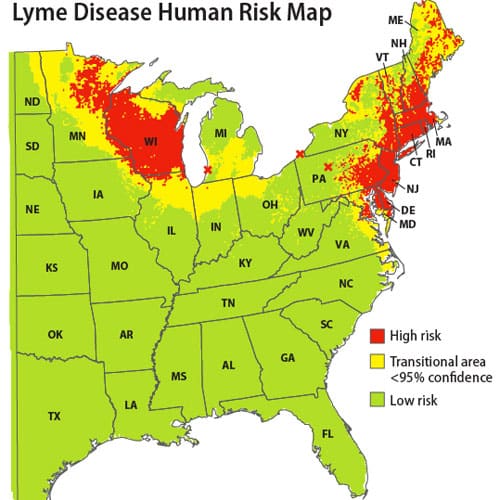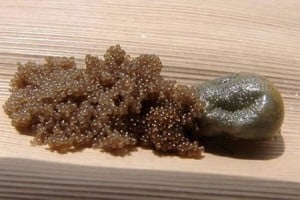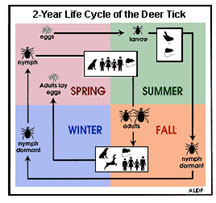Tick Facts for NJ and PA Residents

Image courtesy of American Lyme Disease Foundation
Understanding all the facts about ticks is key to their elimination and preventing diseases, such as Lyme disease and Babesiosis. Here's what you need to know to keep you and your family safe ...
New Jersey and much of the Northeast US is a high risk “hot spot” for Lyme disease in humans.
The blacklegged tick, Ixodes scapularis, commonly known as the deer tick, is the only tick that transmits the Lyme disease bacteria. It’s also a potential carrier of Babesiosis, as well as another recently discovered disease-causing bacteria called Borrelia miyamotoi. This disease, yet to be named, is similar to Lyme disease but requires different screening to be detected. More information Here
Adult female deer ticks lay approximately 3000 eggs in early spring. Later in the summer, these eggs hatch into larva.

Female deer ticks lay several thousand eggs each
To grow into each subsequent stage in its life cycle, a deer tick must seek out a host for a “blood meal”. Larval ticks are not born infected with the Lyme bacteria and therefore cannot transmit the disease to animals or humans until they molt into their nymph stage.
It’s at this nymph stage from mid spring through mid summer that most Lyme disease cases are reported. This is because of the nymph’s small size and difficulty in being detected until fully engorged, at which point it has had time (24-48 hours) to transmit the Lyme spirochete to its host.
Check yourself, your children and/or your pets carefully daily after spending time outdoors.

Understanding the deer tick’s 2-year life cycle and three growth stages is an integral factor in Organic Plant Care’s effective Tick & Mosquito Program.
Besides deer, wood chucks, squirrels, white-footed mice and voles are also primary vectors of deer ticks. Reducing rodent habitats, like locating brush piles, woodpiles and rock walls away from the house, can help reduce your exposure.
Visit Tips for Minimizing Tick Exposure for more ways to minimize your risk of Lyme disease.
We offer highly effective organic tick control programs. We'd be delighted to discuss the various options with you - just give us a call at 908-386-4071.
Complimentary Tick & Mosquito Control Quote
Contact us today or call 908-309-6611 for a free estimate to treat your property with one of our organic tick and mosquito control programs.
